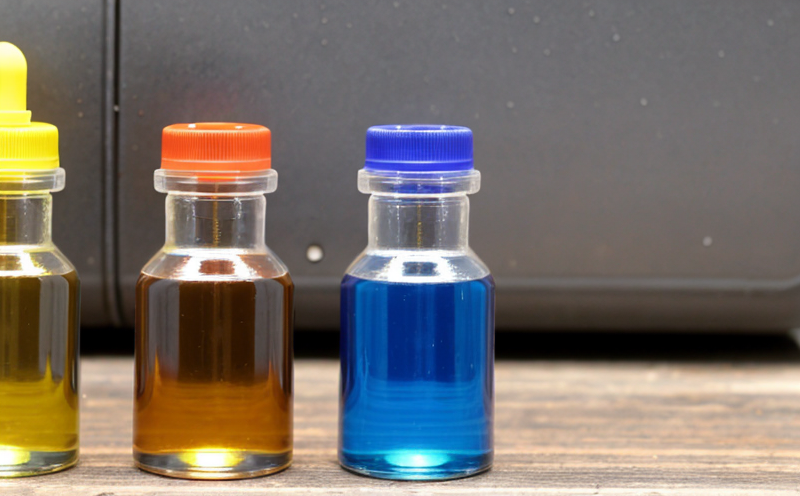Fruit Juice pH Testing
The quality of fruit juice is crucial in ensuring that it meets consumer expectations and regulatory standards. The pH value is one of the most important parameters when testing fruit juices, as it directly influences the taste, shelf life, and safety of the product. A proper pH test ensures that the product remains within safe limits for consumption, preventing potential health issues such as acidosis or alkalosis.
The pH scale ranges from 0 to 14, with values below 7 being acidic, above 7 being basic (alkaline), and exactly 7 being neutral. For fruit juices, the pH is typically between 3.5 and 4.5 for citrus-based juices like orange or lemon juice, while apple and grape juices often have a slightly higher pH value of around 3.8 to 4.2.
The International Organization for Standardization (ISO) provides guidance in ISO 6970:1985, which specifies methods for determining the acidity and alkalinity of fruit juices using potentiometric titration or pH meters. This standard ensures that laboratories performing these tests follow consistent methodologies.
The process begins with proper specimen preparation. The samples should be taken from aseptically prepared containers to avoid contamination. Once collected, the samples are analyzed using a pH meter calibrated according to ISO standards. The results are then compared against acceptable ranges specified by relevant regulations and industry best practices.
Understanding how different fruits contribute to the overall pH value of fruit juice is vital for quality control. For instance, citrus fruits like oranges and lemons contribute significantly to acidity due to their high citric acid content. Apples and grapes provide a balance through their natural sugars and pectin levels. This interplay between acids and bases creates a unique flavor profile that must be carefully controlled.
Proper testing ensures compliance with local and international standards, which vary by region. For example, the European Union (EU) regulations set specific pH limits for different types of fruit juices to ensure product safety and quality. In addition to these regulatory requirements, many large retailers have their own internal specifications that must be met.
The accuracy of the pH test is paramount in maintaining brand reputation and consumer trust. Incorrectly measuring the pH can lead to off-tasting products or potential health risks if the juice becomes too acidic or alkaline. Regular calibration of equipment and adherence to standardized procedures are essential for reliable results.
Benefits
- Ensures Compliance: Ensures that the product adheres to local and international regulations regarding pH levels.
- Maintains Quality: Consistent pH testing helps maintain the desired taste profile, extending shelf life and enhancing consumer satisfaction.
- Risk Management: Reduces the risk of spoilage and potential health issues associated with incorrect pH levels.
- Informed Decision-Making: Provides data for informed decision-making in quality control processes.
Why Choose This Test
Fruit juice pH testing is a critical component of the overall quality assurance process. By choosing this test, you demonstrate your commitment to producing high-quality products that meet regulatory standards and satisfy consumer expectations. The precision and reliability provided by professional-grade equipment ensure consistent results, which are essential for maintaining brand reputation.
The expertise of our laboratory technicians combined with state-of-the-art instrumentation guarantees accurate pH measurements every time. Our services not only comply with international standards but also exceed industry expectations, providing you with peace of mind knowing that your product is safe and of the highest quality.
We offer comprehensive support throughout the testing process, from initial consultation to final report delivery. Whether you are a small business owner or part of an established corporation, our team is dedicated to helping you achieve optimal results in pH testing for your fruit juices.
International Acceptance and Recognition
The importance of international acceptance cannot be overstated when it comes to fruit juice pH testing. Many countries have their own set of regulations regarding the pH levels of fruit juices, ensuring that products sold within these markets meet specific criteria.
In addition to national standards, organizations like the International Organization for Standardization (ISO) and the European Committee for Standardization (CEN) provide guidelines that are widely recognized and accepted across borders. Compliance with these international standards not only facilitates easier market entry but also enhances brand credibility.
The acceptance of our laboratory's pH testing services extends beyond mere compliance; it includes recognition from major industry bodies such as the Food Safety Authority (FSA) and World Health Organization (WHO). This recognition underscores the reliability and accuracy of our tests, making them a preferred choice for companies seeking to ensure product safety and quality.
By choosing our laboratory for pH testing, you not only meet regulatory requirements but also position your brand favorably in the global market. Our commitment to excellence ensures that every test conducted aligns with the highest international standards, providing you with confidence that your fruit juices are safe and of top quality.





